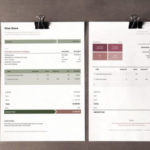Lessons of a template-based Business Central-project
When Tabellae decided to transfer their ERP solutions in Denmark, Norway and Sweden to Microsoft Dynamics 365 Business Central, they opted for an intensive migration project. Stefan Reina was in charge of the project, and here he talks about what he learnt and offers some tips.
Stefan Reina, COO, Tabellae
Tabellae were using e-conomic in Denmark, Fortnox in Sweden and Tripletex in Norway, and they wanted to migrate all of this to Dynamics 365 Business Central.
They chose the Unbox template-based project format, which meant that the work was actually completed in a couple of weeks. Read about Unbox here.
Why choose an intensive project?
‘The intensive project was attractive to us because it’s a managed project format with a fixed price. The fact that it was a fixed-price project was very appealing’, says Stefan Reina, who is COO at Tabellae.
‘The thinking behind an intensive schedule is really good. I think the processes that go into the project are really well designed.
‘Our attitude and approach made it easy for us to choose a standard project, too. We don’t really want to have customizations carried out. We feel that we’re a company with relatively simple processes, and we are used to using standard systems anyway, so we had no misgivings about opting for another standard system.’
Focus on project scope from the outset
An Unbox project includes training, set-up, data migration — everything that’s needed to go live, in fact.
However, it also depended on Tabellae being prepared to follow the templates. This meant that Tabellae received a standard chart of accounts and a standard set-up, and the project was carried out according to a strict template.
So, what do you do if you need things that fall outside the scope of the Unbox project?
‘As far as we were concerned, subscription management was the only thing the solution couldn’t do as standard. We sell software subscriptions, and we need to manage service level agreements and maintenance contracts. That’s not covered by the standard system, but we were aware of this from the start’, says Stefan Reina.
‘In fact, the process took account of it. The Unbox project began with a meeting at which Abakion ran through a highly structured questionnaire to clarify everything and catch the things that might not be covered by the standard project. Then, we could choose how we wanted to handle it.
‘We opted to go live with the standard solution – and later we will carry out a second phase to add subscription management.
‘We subsequently found out that in fact the solution can do a lot of what we need, so perhaps phase 2 won’t be quite as much work as we expected. Which is just fine, of course.’
Some tips if you’re thinking of Unboxing
‘We were pleased with the intensive project format, because it is really well structured. But of course the intensive schedule also puts pressure on you.
‘Going live in three countries at once was probably a bad idea. I would advise others to take it one country at a time. We should have done Denmark first and built up skills and experience in the Danish organization, then they could have helped colleagues in the other countries, one at a time. That would have been smarter.
I also think there is a big difference between coming from Navision and coming from another system. If you are used to using Navision, the new Business Central is relatively easy to learn, because the user interface and processes are familiar.
‘We were coming from e-conomic in Denmark, and other solutions in Sweden and Norway. That requires a bit more training and familiarization. If you don’t come from the Navision world, it is a transformation process, because staff have to learn to use a completely different system. You have to ensure that the necessary resources are allocated internally, and let staff take the time they need.’
Once the project gets under way…
All in all, Stefan Reina would happily recommend an intensive project to others.
‘I think the Unbox approach is brilliant. I would recommend it to others any time. It is impressive that they can package everything as templates, follow a set process and stick to the standard solution – and do it for a fixed price.
‘I would also advise other companies not to fixate on the price, though. It made sense for us to supplement it with additional training, because we were coming from different solutions.
‘Use the introductory activities built into the process to assess whether anything needs to be added on to the project. It is worth spending time on this at the start because, once the project gets under way, the pace is fast.’
ERP – read more | |
 | Prices and subscriptions |
 | All about Business Central |
 | The 2-week migration project |
 | Apps for Business Central |


Tabellae is an implementation house specializing in Output Management solutions based on Lasernet.
Tabellae is represented in Denmark, Norway, Sweden as well as in the United States of America.

Stefan Reina is chief operations officer (COO) and partner at Tabellae, where he has been working since 2010.